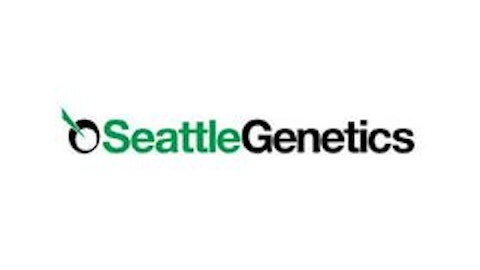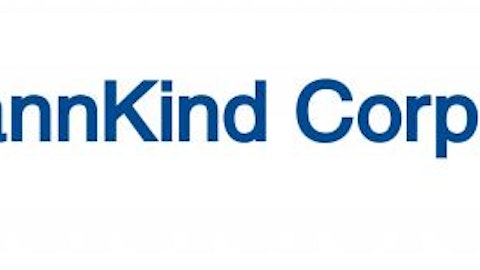A new drug in the fight against cancer is certainly an exciting and welcome development. Unfortunately, in many cases, the news often pushes the stock price of the company involved to overly enthusiastic heights. While the optimism about the drug may be fully justified, some investor caution on the stock may be prudent.
Recent news about Bristol Myers Squibb Co. (NYSE:BMY)‘s latest oncology drug candidate might be such a case. The company recently announced encouraging Phase I testing data on the drug nivolumab, which helps the immune system attack cancerous cells by restricting a cell protein called PD-1. The excitement surrounding the positive result helped push the stock up from around $40 to near $50 in a month. While the benefits of the drug are certainly encouraging, there are good reasons investors might want to be careful with the shares.
Beware the expectations
Shareholders have been hurt in many cases where expectations for a new pharmaceutical discovery meaningfully exceeded the eventual reality. One of the most recent and striking examples was with Dendreon Corporation (NASDAQ:DNDN).
This company received FDA approval for its lead product Provenge, an immunotherapy for prostate cancer, in April of 2010. The drug treats prostate cancer by stimulating the body’s own immune system to attack malignant cells. News of the drug’s approval drove the shares more than 30% on that day and pushed the stock from around $5 to over $50 per share over time. Analysts quickly became enamored with the company and estimated the $93,000 treatment would generate sales that could easily top $1 billion a year and could go as high as $2 billion.
Unfortunately, results fell far short of those expectations. Dendreon Corporation (NASDAQ:DNDN) reported full year sales of $214 million in 2011 and $325 million in 2012. In its latest quarter, sales dropped to a disappointing $68 million from $82 million in the comparable 2012 period. The company said that competitive pressure from a new Johnson & Johnson (NYSE:JNJ) drug called Zytiga, conveniently priced at $82,000 per treatment, was a major reason for the shortfall. The company’s future is uncertain and the stock price recently traded around $4.
Beware the competition
Excessive enthusiasm often blinds investors to potential competition, which can greatly reduce even a highly effective drug’s economic potential. Bristol Myers Squibb Co. (NYSE:BMY)’s nivolumab looks to face a couple of strong rivals. Drug giant Merck & Co., Inc. (NYSE:MRK) also has an experimental drug that targets PD-1. The drug, called lambrolizumab or MK-3475, showed essentially the same result as Bristol’s in a recent study and is thought to potentially have fewer side effects.
European pharma-company Roche is also a competitor. A leader in oncology with the blockbuster drug Avastin, it is working on an immune system booster called MPDL320A. The compound targets a protein called PD-L1, which the company believes may be more selective and safer than the PD-1 inhibitors of Bristol Myers Squibb Co. (NYSE:BMY) and Merck & Co., Inc. (NYSE:MRK). The thought is that the PD-1 drugs may impact not only the intended target, but possibly other healthy cells, which could cause lung inflammation and other serious side effects not seen with the Roche product.
Beware Bristol’s numbers
Bristol Myers Squibb Co. (NYSE:BMY)’s recent financial results might also indicate that caution could be warranted. Based on the numbers, the company’s shares look priced for assuredly much better times.






